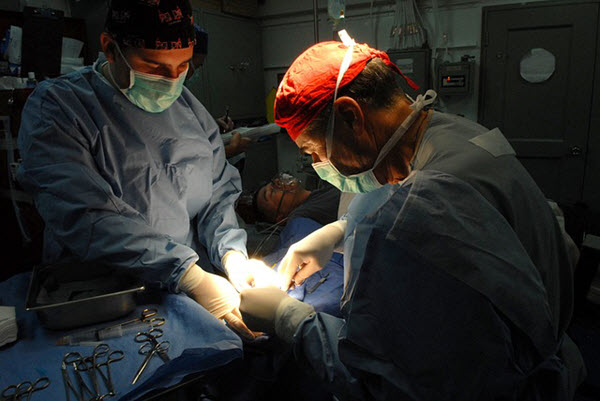Just the thought of going under the knife and having a medical procedure is frightening. But as there is nothing you can do, you’ll listen to your doctor's advice and have surgery. Unfortunately, surgical malpractice can happen. It can lead to injuries and even death. In other cases, a doctor’s mistake leads to a medical malpractice claim. So, what to do if a doctor makes a mistake?
Types of Surgical Medical Mistakes

It is not easy going under the knife. A patient will be helpless, relying only on the doctor and the medical staff. He is cut open while unconscious. But having surgery, a patient hopes to get better. Unfortunately, mistakes can occur, even in the simplest operations.
The following are the most common surgical mistakes that can happen during the procedure.
- Foreign objects left inside the body: This is one of the most common surgical mistakes. Surgeons might leave gauze pads or even a scalpel inside a patient’s body, causing pain and/or infections. In other cases, foreign objects left inside can cause the patient’s death if unattended.
- Anesthesia mistakes: It is a fatal surgical error when administered excessively. When this happens, the patient won’t receive sufficient brain oxygen, leading to brain damage and eventually, death. In some cases, anesthesia might not be enough leading to the patient not feeling numb, experiencing pain and waking up in the middle of the operation.
- Wrong patient: It is another common surgical mistake that can lead to death where there is an error during preoperative verification. As a result, they perform a surgery on the wrong patient.
- Incorrect surgical site: A doctor can operate on the wrong body part. It can happen with amputations or kidney transplants, leading to a surgical mistake.
- Nerve damage: This mistake can result in a lifetime of disability or pain. It happens with just a hand tremor or an incorrect flick of the wrist. In other cases, a scalpel slip can lead to nerve damage and lifetime disability.
Other types of surgical errors also include:
- Failure to detect or diagnose a dangerous medical condition during the procedure
- Damaging healthy organs
- Failure to fix or prevent any complication during a surgery such as gynecomastia surgery
- Not monitoring a patient well for any issues like internal bleeding or infection following a surgery
- Mistakes made during an emergency surgery
- Leaving any instrument in the body of the patient after surgery
What Are My Options After A Surgical Mistake?
What are your options? What should you do next?
Check out the following for what you need to know.
Medical help
Health is always a top priority. If you’re injured due to a surgeon’s mistake or negligence, you should report this issue to the surgeon right away. Then, seek medical help from a physician who can improve the medical error if it’s detected early.
If you have Medicaid plans, which provide health coverage for low-income individuals, you can use it to lower your costs and get health coverage.
Also, you need to find a health specialist for treating the specific injury. But, you must provide the medical provider with your medical history, as well as all information about the medical error. You must be honest and give correct and thorough information.
You might also have to share what your health was like before, during and after the error along with your current condition.
Be sure that the doctor will have access to the medical records that would affect the diagnosis and plan for treatment.
Report
Each state has its own procedure when it comes to filing a complaint with the medical board along with varying requirements and forms. When a complaint is filed, an investigation is conducted by the medical board for disciplinary action against the doctor. However, there is only a small percentage of the filed reports that are given action or doctors that get a disciplinary action.
Legal Action
If you want to take legal action, you should consult with a medical malpractice attorney for advice. However, make sure to ask help from lawyers with specialization in such cases to help you fight for your rights.
You have what you need to know about the types of surgical mistakes and options you have following a surgical error. Learn what to do, especially if you have to file a medical malpractice claim.